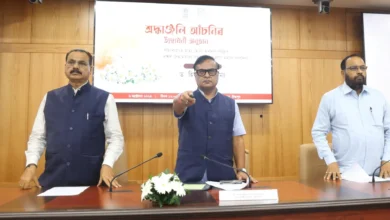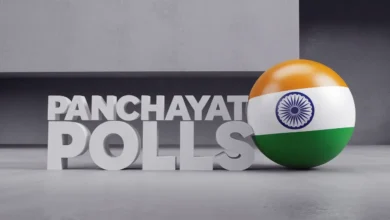Navigating the Digital Frontier: The Influence of Instagram and Facebook in India’s 2024 General Elections

Instagram and Facebook’s Impact on India’s 2024 General Elections: Navigating the Digital Frontier
Irfan Khondker, Advocate, Dhubri, April 23, 2024: In today’s digital era, social media platforms have evolved into potent instruments for political campaigns. As India braces itself for the 18th General Elections in 2024, political entities are increasingly recognizing the profound impact wielded by platforms such as Instagram and Facebook. These digital arenas present unique opportunities for engagement, outreach, and mobilization, facilitating direct connections between parties and voters spanning diverse demographics. Let’s delve deeper into how political entities are harnessing the power of social media to court voters from all walks of life.
Set to unfold in seven phases from April 19 to June 1, 2024, India’s ongoing general election marks a departure from traditional communication channels dominated by mainstream media. The pivotal shift commenced during the 2019 election, where approximately one-third of the voting populace had embraced social media, a trend that has only gained momentum since then. These platforms serve as conduits, transcending geographical constraints and forging direct links between political players and their electorate.
Reflecting on the political landscape beyond India, we can draw inspiration from the historic campaign of Barack Obama in 2008, which revolutionized political strategy by seamlessly integrating social media advertising into his bid for presidency. Obama’s grassroots movement leveraged the power of social media to recruit volunteers, garner financial support, and empower supporters across the United States. Since then, social media has emerged as a cornerstone of modern campaign tactics, enabling candidates to engage with voters, articulate policy positions, and craft compelling narratives.
Instagram and Facebook, with their emphasis on visual content, have emerged as veritable goldmines for political parties seeking to cultivate relatable personas. Through carefully curated images and videos, parties humanize their leaders, offering voters intimate glimpses into their lives. From candid behind-the-scenes moments to live-streamed events, these platforms enable parties to showcase their authenticity and connect with voters on a personal level.
The advent of Facebook Live and Instagram Live has further democratized political discourse, facilitating real-time interactions between candidates and voters. Through Q&A sessions, town halls, and virtual rallies, candidates engage directly with constituents, fostering transparency and nurturing trust. Moreover, the precision targeting capabilities of these platforms empower parties to tailor their messages to specific demographics, interests, and behaviors, ensuring maximum impact.
Collaborations with influencers and celebrities serve as force multipliers, amplifying parties’ reach and resonance. By enlisting the support of influential figures, parties bridge the chasm between politics and popular culture, enhancing their appeal and visibility among diverse audiences.
However, the proliferation of misinformation and disinformation poses formidable challenges. Independent fact-checking platforms like AltNews play a crucial role in debunking falsehoods, while social media companies invest in third-party fact-checkers to combat misinformation. Yet, the battle against deepfakes and manipulated content rages on, underscoring the need for vigilance and scrutiny.
Moreover, while social media fosters connectivity, it also engenders echo chambers, wherein users are exposed solely to content that reinforces their existing beliefs. Parties must strive for balanced messaging and engage with diverse perspectives to counteract this phenomenon effectively.
Furthermore, the escalating concerns surrounding surveillance and data privacy underscore the imperative of striking a delicate balance between engagement and protection. As parties navigate the intricacies of the digital landscape, they must ensure that their outreach strategies encompass both online and offline audiences, thereby fostering inclusivity and accessibility.
As India stands on the cusp of a landmark electoral showdown, Instagram and Facebook emerge as linchpins in shaping voter perceptions. Political entities must navigate this dynamic digital terrain with finesse, leveraging its strengths while mitigating its pitfalls. The 2024 elections herald a new era of online engagement, and parties adept at mastering this digital frontier will wield a decisive advantage in capturing the hearts, minds, and votes of the electorate.
Also read: Electrocution Tragedy Claims Life of 18-Year-Old in Kholabandha Village




